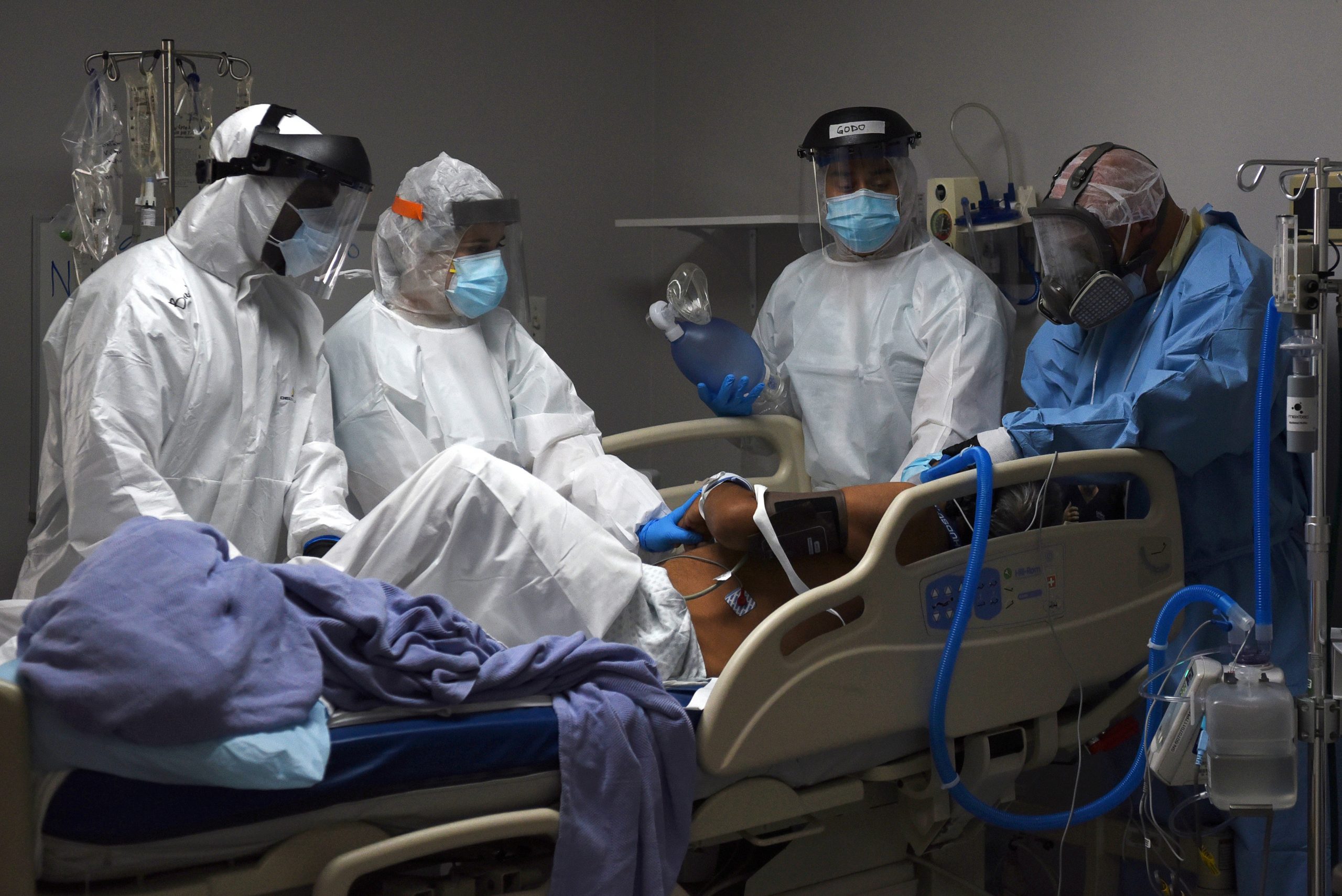More U.S. states and businesses on Monday rolled back plans to reopen their economies, citing surges in coronavirus cases and hospitalizations, as the government’s top infectious disease specialist blamed the spikes on Americans ignoring public health guidelines.
The rises in confirmed cases and hospitalizations have been most pronounced in Sun Belt states such as Florida, Texas and Arizona that defied advice from health experts to wait longer before easing restrictions.
“That’s a recipe for disaster,” Anthony Fauci, director of the National Institute of Allergy and Infectious Diseases, told CNN in an interview broadcast on Monday.
“Now we’re seeing the consequences of community spread, which is even more difficult to contain than spread in a well-known physical location like a prison or nursing home or meatpacking place,” Fauci said in the interview, which was recorded on Friday.
The New York Times reported on Monday that 43 percent of U.S. deaths from COVID-19 were linked to nursing homes and long-term care facilities. The paper cited its own tracking database.
New Jersey Governor Phil Murphy said on Monday that indoor dining will no longer resume on Thursday in the state as planned and would be postponed indefinitely.
California authorities on Sunday ordered bars in Los Angeles and six other counties to close. Texas and Florida ordered the closure of all their bars on Friday.
Beaches in Florida’s Broward County and Palm Beach County will not open on July 3-5, officials said on Sunday, a blow to residents hoping to celebrate Independence Day there on Saturday. Miami-Dade County had already announced beach closures for the holiday weekend.
AMC, the largest U.S. movie theater chain, on Monday said it was pushing back the opening of its theaters to July 30 from July 15.
PENCE URGES AMERICANS TO WEAR MASKS
Arizona and Georgia were among the states reporting record new cases this week. Last week, a total of 15 U.S. states reported records, according to a Reuters tally.
In June, 22 U.S. states reported record increases in new cases, often multiple times, including Alaska, Arkansas, Montana, New Mexico, North Carolina, Oregon and Utah.
Face coverings have become a political issue, with some civil rights activists and supporters of U.S. President Donald Trump arguing that such mandates are unconstitutional.
The city of Jacksonville, Florida, venue for part of the Republican nominating convention in August, said on Twitter that it would be requiring masks for all public locations starting later on Monday.
White House Press Secretary Kayleigh McEnany said on Monday that Trump “has no problem with masks and to do whatever your local jurisdiction requests.”
U.S. Vice President Mike Pence on Sunday pressed Americans to adopt face masks during a trip to Texas and wore one himself, a sharp turnaround for the administration. Other Republican politicians in hard-hit states also are now calling for masks.
The United States accounts for about a quarter of all reported coronavirus cases and related deaths worldwide, which surpassed 10 million and 500,000, respectively, over the weekend.
New York Governor Andrew Cuomo on Monday blamed Trump for the new surge in cases, saying the president’s focus on reopening the economy had backfired.
Cuomo has himself come under criticism for his handling of the virus in New York, which has recorded more than double the number of deaths than any other U.S. state.
The governor conceded in an interview on NBC News on Sunday that he had taken “political heat” for his decision to put recovering patients in nursing homes but denied that it put more elderly people at risk.
(Reporting by Susan Heavey and Doina Chiacu in Washington, Maria Caspani in New York, Nathan Layne in Wilton, Connecticut and Lisa Shumaker in Chicago; Writing by Grant McCool; Editing by Howard Goller, Bill Berkrot and Cynthia Osterman)
























